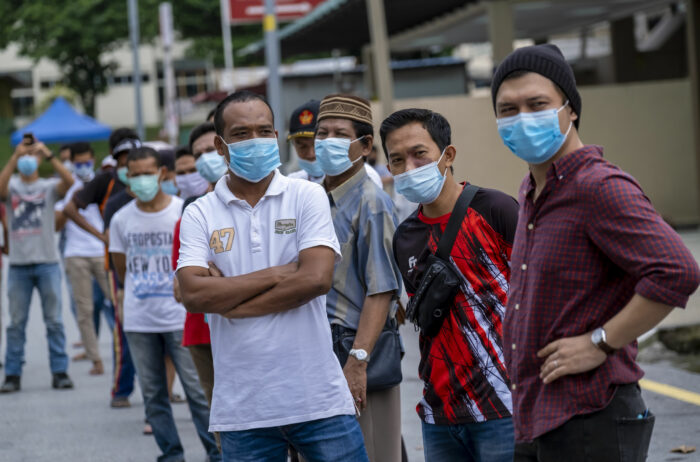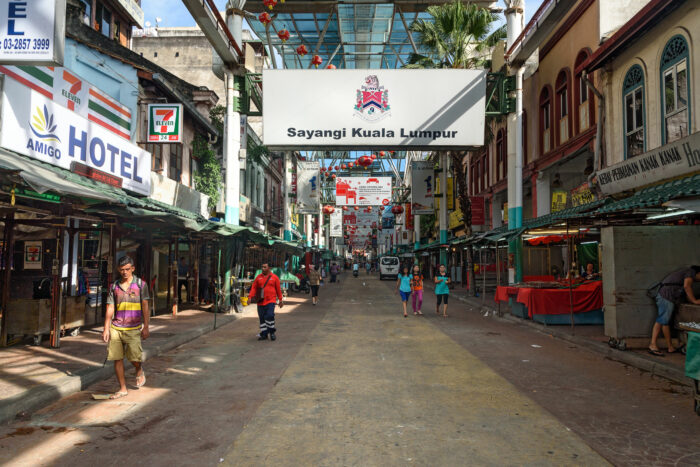Singapore mulls progressive wage model for retail sector

Senior minister of state for manpower Zaqy Mohamad has said the government is considering a progressive wage model (PWM) for the retail sector.
Gender wage gap in Taiwan narrows in 2020

Taiwan’s average hourly gender pay gap fell from 17.1% in 2010 to 14% in 2020, which translates to a fall from 63 to 51 extra work days.
6 key facts about the multigenerational workforce in 2021

Rachele Focardi explains why generational diversity and inclusion is quickly becoming the hottest item on the agendas of CEOs and CHROs.
Australian employers cannot force staff to get COVID-19 jab

The Fair Work Ombudsman (FWO) and Safe Work Australia (SWA) have advised employers to assume employee vaccinations are not required.
Malaysia imposes requirements for improved workers’ lodging

Failure to comply with government orders to improve living quarters will result in RM200,000 in fines or a three-year jail term, or both.
Hong Kong will face unemployment woes for more than three years

Unemployment will plague Hong Kong for years ahead, and that it may take more than three years for the jobless rate to fall below 5%.
New Zealand businesses can apply for government support from March 2

Companies must show a 30% fall in revenue over seven days compared with a similar period in the six weeks prior to the heightened alert level.
L&D enters a new era of learning and employee development

Leading up to Learning Technologies Asia, RedThread Research shared how the role of L&D is being redefined in a new world of work.
DOLE proposes wage subsidy for workers in the Philippines

Assistant Secretary Dominique Tutay of the Department of Labor and Employment (DOLE) is proposing a three-month wage subsidy for workers.
Gig workers in Singapore need help in terms of social security

The labour movement is looking into how gig workers can have greater structural support, which can include greater bargaining power.
Workplace culture and empowerment in the new digital economy

Derick Teo, Director, Enterprise Go-Digital Solutions, BIPO, shares his observations and insights on why building an employee-first culture is critical.
#BetterMe by AXA helps organisations construct more resilient workforces

#BetterMe by AXA is designed to help build a healthier and more productive workforce.
Household incomes in South Korea fell for third straight quarter in 2020

Data from Statistics Korea showed that household incomes from salaries and business operations declined for three consecutive quarters in Q4 2020.
Chinese lobby group calls on shared parental leave

Making it compulsory to use at least a third of shared parental leave will force fathers to be more involved in childcare, says the Shanghai Women’s Federation.
Singapore’s aviation sector set to receive increased wage subsidies

This is part of the S$870 million OneAviation Support Package announced in Budget 2021 to support firms hit hard by the pandemic.
Temporary jobs for South Koreans in their 20s plunge as pandemic wears on

Statistics Korea said the number of temporary and daily jobs for those in their 20s declined 18% in January due to the pandemic.
Hong Kong testing centres fully booked as businesses reopen

As the restrictions on businesses ease in Hong Kong, testing centres for COVID-19 are stretched to the max due to mandatory testing.
Thailand approves 4,000-baht handouts for salaried workers

Under its social security system, the government has approved a scheme that will give salaried workers 4,000 baht (US$134) each.
Australia sees workers on wage subsidies fall

The number of workers who collected wage subsidies decreased by about 2 million over an eight-month period last year.
Pandemic widens employment gap in South Korea

Smaller businesses saw a steep drop in employment numbers while that of larger conglomerates rose last year.
Hong Kong welfare minister rejects temporary unemployment fund

The minister said that it would be tricky to draw the line for when the scheme should stop, and urged that public policy needs to be fair.
Rethinking compensation for a new work environment

Organisations also need to update their indicators for the new normal, and make data-driven decisions to inform their HR strategy.
New SOPs for workplace safety in India to contain spread of virus

The government has issued new SOPs that allow work to resume in offices after disinfection has been done in accordance with new protocols.
Driving organisational growth with L&D as the focal point

Learning Technologies Asia 2021 will examine how organisations can develop their learning strategies to stay ahead, innovate and grow.
Malaysia approved RM12.76 billion in wage subsidies as of end January

The National Employment Council estimates that over 160,000 new jobs will be created this year through committed investments.
Singapore pumps in S$5.4 billion to hire 200,000 locals

The government announced a range of Budget 2021 measures aimed at helping workers and businesses to land jobs and sustain operations amid the pandemic.
New Zealand mulls vaccinating workers at their workplaces

The government is considering giving employees the COVID-19 vaccine the same way they get their annual flu jab at work.
Philippine MSMEs cannot afford wage increase amid pandemic

Employers Confederation of the Philippines (ECOP) believes that raising daily wages by P100 (US$2.1) will likely result in more unemployment.
South Korea expects modest recovery in job market

Service industries that require face-to-face interactions are expected to have a slower recovery as compared to other sectors.
Japan’s overtime pay in 2020 sees largest fall in 11 years

The speed of decline was the fastest since 2009, when the global financial crisis led to a drop of overtime wages by 13.5%.
